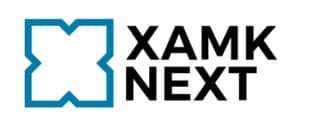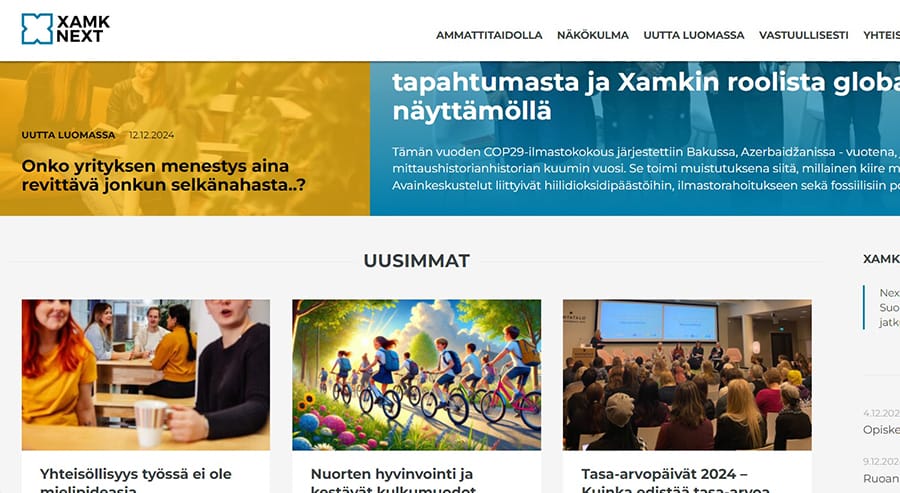Opiskeluterveysneuvottelut opiskelijan tukena opintojen vaikeina hetkinä
Opiskelija kävi ensimmäisenä yhteisenä vuotenamme aina silloin tällöin. Oman elämän asiat olivat hänen mukaansa hyvin. Opinnot vain takkusivat. Tavattiin myös opettajan kanssa. Ne olivat tiukkasävyisiä keskusteluja, joissa ei auttanut pehmentävät sävyt -opintojen eteen olisi todellakin nyt tehtävä jotain. Hän lupasi taas yrittää. Toisena ja kolmantena vuonna hän kävi jo säännöllisemmin. Mitään ei tapahtunut. Opintopisteitä ei kertynyt. Olin huolissani, ja sanoin että nyt on aika miettiä jotain muuta. Opiskelija oli eri mieltä. Hän ei luovuta. Viidennen yhteisen vuoden alkaessa tiesin jo, miten kävisi. Lopputulos ei ollut toivottu. Aika loppui kesken. Ei tutkintoa. Eikä varasuunnitelmaa.
Kulissien takana on usein paljon asioita, joita ei kerrota. Yksinäisyyttä, väsymystä, turhia toiveita. Odotuksia, joihin ei sitten saa haluamiaan vastauksia. Korkeakoulussa opiskelijoilta edellytetään paljon valmiuksia itse opintojen suhteen, mutta samalla myös elämänhallinnan suhteen. Paketin olisi syytä olla hyvin kasassa, kun opinnot alkavat. Paketin olisi hyvä myös pysyä kasassa, kun elämä etenee. Ja pitäisi olla rohkeutta todeta, kun kaikki ei mene niin kuin on kuvitellut.
Monesti toimistossani käydään niitä väistämättömiä keskusteluja, joissa aika loppuu, opinnot seisovat, opiskelija ei tiedä mihin enää tarttua. Elämä kaatuu siinä hetkessä päälle. Harvemmin siinä viisastelukaan on paikallaan. “Mitäs mitä sanoin” on kurjinta, mitä voi todeta. Monesti joutuu miettimään, onko antanut liikaa toivoa. Onko tukenut väärällä tavalla sellaista, mistä on jo lähtötilanteessa arvellut, että toinen ei selviä? Jokaisella on aina mahdollisuus, ja lopputulokseen voi vaikuttaa vain hän, joka tulosta tekee.
Opiskelijan kanssa siinä sitten ihmeteltiin, että mitäs nyt. Vähän ehkä piti itkeäkin, pohtia miten tämän vanhemmille kertoisi. Korkeakoulun kannatteleva läsnäolo jäisi pois. Haave arkirutiineista, joita ei edes ollut, haihtui. Talouskin mietitytti. Varattiin aikaa palveluihin, joiden tarkoituksena on auttaa eteenpäin. Vaikka näkisit tilanteen ja aavistaisit suunnan, mihin kaikki voi kääntyä, ihmistä ei voi auttaa, jos hän ei uskalla itselleen tunnustaa oman elämänsä tosiasioita.
YTHS on marraskuussa 2020 julkaissut opiskeluterveysneuvottelumallin.
Kuka tahansa opiskelijan tilanteesta huolestunut voi tehdä aloitteen neuvottelusta. Sen tavoitteena on edistää opiskelukykyä ja mahdollistaa opintoja opiskeluoikeusajan puitteissa. Neuvottelun tavoitteena on myös miettiä tarkoituksenmukaisia keinoja opiskelukyvyn tukemiseksi hyvissä ajoin. Ratkaisuja pohdittaessa mietitään, miten pedagogisin erityisjärjestelyin, YTHS:n ja korkeakoulun tukitoimien avulla opiskelukyvyn esteistä voi selvitä. Tarkoituksena on laatia suunnitelma, joka huomioi kaikkien osapuolien toimenpiteet, ja toteuttaa suunnitelmaa.
Opiskeluterveysneuvottelumalli myös tiivistää yhteistyötä korkeakoulun ja opiskeluterveydenhuollon välillä. On kokonaisuuden kannalta tärkeää pystyä yhdessä arvioimaan, miten tuki hyödyttää opiskelijaa. Olemme yhteisellä asialla, opiskelijan hyvinvointi ja opinnoissa jaksaminen on kummallekin tärkeää. Opiskelijalla itsellään on aina ensisijainen vastuu opiskelukykynsä ylläpitämisestä, mutta huolen kanssa ei tarvitse opettajan tai ohjaushenkilökunnan jäädä yksin.
Hyvin harva muuten palaa kertomaan, miten elämässä on käynyt. Tämäkin opiskelija vain katosi, muutti ehkä muualle. En voi kuin toivoa, että elämä kantaa.




